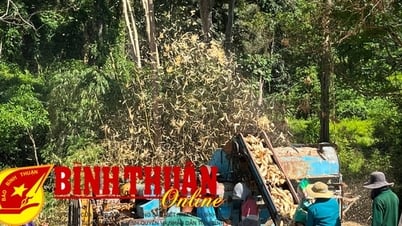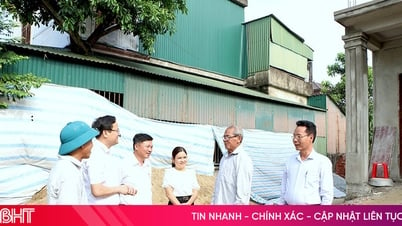With an impressive scale of representatives from 59 countries and more than 400 participating enterprises, WOOE 2025 has affirmed its position as the leading business networking forum in this field, attracting a large number of international manufacturers, traders and buyers.
The rich exhibition program of WOOE 2025 includes a wide range of activities: presentations and seminars focusing on market trends and new development opportunities; the display and tasting of more than 150 types of extra virgin olive oils from many regions; B2B networking sessions to promote direct trade between parties. An important highlight of the event is the market diversification strategy, aiming to minimize risks from trade barriers by expanding to potential markets in Europe, Asia, Latin America and the Middle East. Below is a summary of information from the Vietnam Trade Office in Spain about the Spanish olive oil industry.
The olive oil industry is one of the main pillars of the Spanish economy, with a market value expected to reach $2.92 billion by 2025. This figure marks an increase from $2.84 billion in 2024 and is forecast to reach $3.6 billion by 2032, with an annual growth rate of 3.04%. Spain is currently the world leader in olive oil production, contributing about 45% of the total global production. The country has more than 2.75 million hectares dedicated to olive cultivation, of which 2.55 million hectares are used for oil production. Andalusia is the largest olive oil producing region in Spain, accounting for 80% of the national production, with the province of Jaén contributing 37%.
Spain is also the world's largest exporter of olive oil, with about 65% of its production going to international markets. Major export markets include the United States, Brazil and Japan. The quality and variety of its oils help Spain meet the needs of consumers around the world. In addition to its economic value, the olive oil industry also plays an important role in creating jobs, especially in rural areas, with an estimated 350,000 farmers involved in olive cultivation.
The Spanish government's policy in the olive oil sector has played an important role in promoting the development of the sector, enhancing its competitiveness through a strong regulatory framework, strategic plans and sustainable development orientations, including:
- Setting strict standards for quality and traceability: 31 Protected Designation of Origin (DOP) and 2 Protected Geographical Indications (IGP), along with regulations such as Decree 760/2021, have helped Spain expand its international market, ensure transparency in origin and quality, strengthen the trust and reputation of Spanish olive oil, while balancing interests in the value chain, protecting farmers and promoting economic development.
- Investing in modernization: the “Spain Food Nation” campaign, the 2021 EU-US trade deal and technological innovation support programmes from the Ministry of Agriculture, Fisheries and Food have raised food safety standards, increased competitiveness and boosted exports.
- Promoting sustainable production: through the protection of traditional olive groves and initiatives such as the Spanish Green Economy Strategy, the VAT exemption until September 2025 supports meeting EU climate targets and maintains the high nutritional value of olive oil, contributing to the development of the sector.
In addition, the olive oil industry in Spain is facing a series of challenges and difficulties that could affect the long-term stability and growth of the industry:
- Price volatility: The industry is subject to significant price volatility due to changes in production and demand. For example, in early 2025, olive oil prices fell by 50% due to forecasts of increased production in the 2024/2025 crop year.
- Impact of climate change and drought: Adverse weather conditions such as droughts and heatwaves have affected yields. Climate change is likely to intensify these extreme events, forcing the industry to invest in resilient growing techniques and efficient irrigation systems.
- International competition: Spain is facing increasing competition from countries such as Italy, Greece and Türkiye. To maintain its leadership, Spain needs to innovate in quality, sustainability and added value, especially in high-end markets.
- High production costs: Production costs, especially in traditional olive groves, are often high due to specialized labor and low productivity. There is a need to rapidly transition to more efficient production methods, such as hyper-intensive cultivation and the application of technology at all stages to reduce costs.
The Spanish olive oil industry not only plays an important role in the economy, but also contributes to maintaining social stability in key production regions. Spain continues to firmly consolidate its position as a world leader in this sector. However, in addition to significant achievements, the industry still faces many challenges that must be overcome.
Source: https://moit.gov.vn/tin-tuc/thi-truong-nuoc-ngoai/toan-canh-cong-nghiep-dau-o-liu-cua-tay-ban-nha-tai-trien-lam-dau-o-liu-the-gioi-2025.html



![[Photo] Many people in Hanoi welcome Buddha's relics to Quan Su Pagoda](https://vphoto.vietnam.vn/thumb/1200x675/vietnam/resource/IMAGE/2025/5/13/3e93a7303e1d4d98b6a65e64be57e870)
![[Photo] President Luong Cuong attends the inauguration of the international container port in Hai Phong](https://vphoto.vietnam.vn/thumb/1200x675/vietnam/resource/IMAGE/2025/5/13/9544c01a03e241fdadb6f9708e1c0b65)

![[Photo] Prime Minister Pham Minh Chinh receives Ambassador of the French Republic to Vietnam Olivier Brochet](https://vphoto.vietnam.vn/thumb/1200x675/vietnam/resource/IMAGE/2025/5/13/f5441496fa4a456abf47c8c747d2fe92)
![[Photo] President Luong Cuong awarded the title "Heroic City" to Hai Phong city](https://vphoto.vietnam.vn/thumb/1200x675/vietnam/resource/IMAGE/2025/5/13/d1921aa358994c0f97435a490b3d5065)













































































Comment (0)